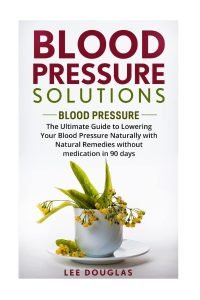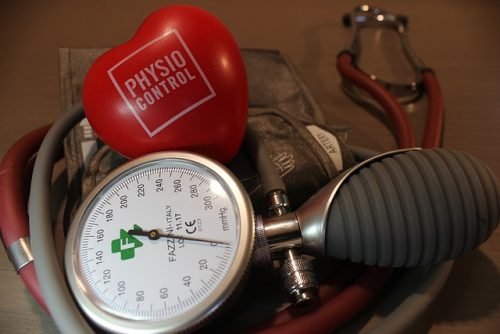The Best Natural Remedy For Hypertension
Are you tired of relying on medication to control your hypertension? If so, you’re not alone. Many people are searching for a more natural approach to managing high blood pressure. In this article, we will explore the best natural remedy for hypertension that has been proven effective and safe. Say goodbye to worrying about harmful side effects and embrace a more holistic solution for your health. With the right natural remedy, you can regain control over your blood pressure and live a healthier, happier life.
Dietary Changes
Reduce sodium intake
When it comes to managing hypertension, reducing sodium intake is a crucial dietary change. High levels of sodium can increase blood pressure, so it’s important to limit your consumption of salt and salty foods. Read food labels carefully, opt for low-sodium or sodium-free products, and avoid adding extra salt to your meals. By reducing sodium intake, you can take an important step towards managing your blood pressure and improving your overall health.
Eat potassium-rich foods
Including potassium-rich foods in your diet can help counteract the negative effects of sodium. Potassium helps your body get rid of excess sodium through urine, which can help lower blood pressure. Some excellent sources of potassium include bananas, oranges, potatoes, spinach, avocados, and tomatoes. By incorporating these foods into your meals and snacks, you can support healthy blood pressure levels and optimize your cardiovascular health.
Increase magnesium consumption
Magnesium plays a vital role in regulating blood pressure and maintaining heart health. Studies have shown that increasing magnesium intake can help lower blood pressure in individuals with hypertension. Good sources of magnesium include leafy green vegetables, whole grains, nuts, seeds, and legumes. Consider adding these nutritious foods to your diet to reap the benefits of magnesium and support optimal blood pressure levels.
Include foods high in omega-3 fatty acids
Omega-3 fatty acids have been linked to numerous health benefits, including the potential to lower blood pressure. Incorporating foods rich in omega-3s, such as fatty fish (salmon, mackerel, sardines), flaxseeds, chia seeds, and walnuts, can be beneficial for individuals with hypertension. Including these foods in your diet can promote heart health and contribute to the management of blood pressure.
Exercise and Physical Activity
Aim for at least 150 minutes of moderate-intensity aerobic activity per week
Regular physical activity is essential for maintaining a healthy blood pressure and overall cardiovascular health. Aim for at least 150 minutes of moderate-intensity aerobic activity, such as brisk walking, cycling, or swimming, per week. By incorporating regular exercise into your routine, you can improve your heart’s efficiency, strengthen your blood vessels, and lower your blood pressure.
Engage in strength training exercises at least twice a week
In addition to aerobic exercise, it’s important to include strength training exercises in your routine. Engaging in activities that help build muscle, such as weightlifting or bodyweight exercises, can have a positive impact on your blood pressure. Regular strength training can help lower resting blood pressure and improve overall cardiovascular health. Aim for at least two sessions per week, targeting all major muscle groups.
Try relaxation techniques such as yoga or meditation
Stress is a known contributor to high blood pressure, so it’s important to find ways to manage and reduce stress levels. Relaxation techniques like yoga, meditation, deep breathing, or tai chi can help promote relaxation and alleviate the effects of stress on your body. These practices can help reduce blood pressure and improve overall well-being. Consider incorporating them into your daily routine to support a healthy blood pressure.

Weight Management
Lose excess weight
Maintaining a healthy weight is important for managing hypertension. Excess weight can increase the strain on your heart and lead to elevated blood pressure. If you are overweight or obese, losing even a small amount of weight can have a significant impact on your blood pressure levels. Implementing a well-balanced diet and regular exercise routine can help you achieve and maintain a healthy weight and lower your risk of hypertension-related complications.
Maintain a healthy body mass index (BMI)
Body mass index (BMI) is a measurement that assesses whether you have a healthy weight for your height. By maintaining a healthy BMI, you can reduce your risk of developing hypertension and its associated health problems. You can calculate your BMI by dividing your weight in kilograms by your height in meters squared. Aim to keep your BMI within the healthy range (18.5-24.9) to support optimal blood pressure levels.
Avoid crash diets
While losing weight is important for managing hypertension, it’s crucial to do so in a healthy and sustainable manner. Crash diets that involve severely restricting calories or eliminating entire food groups can be detrimental to your overall health and may even increase your blood pressure. Instead, focus on making long-term lifestyle changes that promote gradual and sustainable weight loss. Consult with a healthcare professional or a registered dietitian for personalized guidance and support.
Stress Reduction
Practice stress management techniques
Chronic stress can significantly impact your blood pressure levels, so finding effective ways to manage stress is essential. Incorporate stress management techniques into your daily routine, such as deep breathing exercises, progressive muscle relaxation, or mindfulness meditation. These practices can help activate the body’s relaxation response and reduce blood pressure. Experiment with different techniques to find what works best for you and commit to regular practice.
Engage in hobbies or activities that promote relaxation
Participating in activities that you enjoy and find relaxing can significantly reduce stress levels and help manage your blood pressure. Whether it’s painting, gardening, reading, or listening to music, make time for activities that bring you joy and allow you to unwind. By incorporating these hobbies into your routine, you can create moments of relaxation and better cope with the stresses of daily life.
Get enough sleep each night
Adequate sleep is crucial for maintaining a healthy blood pressure. Lack of sleep or poor quality sleep can contribute to elevated blood pressure levels and increase the risk of developing hypertension. Aim for 7-9 hours of uninterrupted sleep each night to support optimal cardiovascular health. Establish a consistent sleep schedule, create a calm and comfortable sleep environment, and practice good sleep hygiene habits to ensure you get the restorative sleep your body needs.
Natural Supplements
Consider taking garlic supplements
Garlic has been used for centuries for its potential health benefits, including its ability to lower blood pressure. Garlic supplements, available in various forms such as capsules or oils, may help lower blood pressure levels in individuals with hypertension. However, it’s important to consult with your healthcare provider before starting any new supplement to determine the appropriate dosage and ensure it won’t interfere with any medications you may be taking.
Try Coenzyme Q10 (CoQ10)
Coenzyme Q10 (CoQ10) is a naturally occurring compound that plays a vital role in energy production within cells. It also has antioxidant properties and has shown some potential in lowering blood pressure. Some studies suggest that CoQ10 supplements may help reduce systolic and diastolic blood pressure readings. However, further research is needed to fully understand its effects. Talk to your healthcare provider to determine if CoQ10 supplementation is right for you.
Explore the benefits of hibiscus tea
Hibiscus tea is a delicious herbal infusion that has been associated with several health benefits, including blood pressure management. Some studies suggest that regularly drinking hibiscus tea may help lower both systolic and diastolic blood pressure. Hibiscus tea is widely available in stores, but it’s important to note that it may interact with certain medications, so consult with your healthcare provider before adding it to your routine.
Consider taking omega-3 fatty acid supplements
In addition to incorporating omega-3-rich foods into your diet, you may also consider omega-3 fatty acid supplements. These supplements can provide a concentrated dose of the beneficial fatty acids, which have been shown to have potential blood pressure-lowering effects. However, it’s important to consult with your healthcare provider before starting any supplement regimen to ensure it’s appropriate for your specific health needs.
Herbal Remedies
Explore the use of hawthorn extract
Hawthorn extract is derived from the berries, flowers, and leaves of the hawthorn plant and has been used in traditional medicine for its potential cardiovascular benefits. Some studies suggest that hawthorn extract may have mild blood pressure-lowering effects. It is available in the form of capsules, tablets, or tinctures. As with any herbal remedy, it’s important to consult with your healthcare provider before using hawthorn extract, especially if you are taking any medications.
Consider using basil extract
Basil, a popular culinary herb, also has potential health benefits, including its ability to support cardiovascular health. Basil extract may help lower blood pressure by relaxing blood vessels and promoting better blood flow. However, more research is needed to fully understand its effects on blood pressure. If you are interested in using basil extract as a potential natural remedy for hypertension, consult with your healthcare provider for guidance.
Try supplementing with ginger
Ginger is a versatile spice with various potential health benefits, including its impact on blood pressure. Preliminary research suggests that ginger may help lower blood pressure by dilating blood vessels and improving blood circulation. You can consume ginger in various forms, such as fresh ginger root, ginger tea, or ginger supplements. As always, consult with your healthcare provider before starting any new supplement regimen.

Limit Alcohol Consumption
Drink alcohol in moderation or avoid it altogether
Excessive alcohol consumption can significantly increase blood pressure and contribute to the development of hypertension. It’s important to consume alcohol in moderation or avoid it altogether for optimal blood pressure management. If you choose to drink alcohol, do so in moderation, which means up to one drink per day for women and up to two drinks per day for men. However, it’s important to note that even moderate alcohol intake may not be suitable for individuals with certain health conditions or those taking certain medications.
Avoid binge drinking or excessive alcohol consumption
Binge drinking or consuming large amounts of alcohol in a short period can have severe negative effects on your blood pressure and overall health. Excessive alcohol consumption can lead to a sudden and dangerous increase in blood pressure levels. To protect your cardiovascular health, it’s important to avoid binge drinking and maintain moderation when consuming alcohol.
Quit Smoking
Seek support to quit smoking
Smoking and exposure to secondhand smoke are significant risk factors for high blood pressure and cardiovascular disease. Quitting smoking is one of the best things you can do to improve your cardiovascular health and manage hypertension. Seek support from healthcare professionals or smoking cessation programs to increase your chances of successfully quitting. They can provide guidance, counseling, and resources to help you develop a personalized quit plan.
Consider nicotine replacement therapy
Nicotine replacement therapy (NRT) can be a helpful tool to assist with smoking cessation. NRT provides controlled doses of nicotine to help reduce withdrawal symptoms and cravings associated with quitting smoking. NRT is available in various forms, including patches, gum, lozenges, inhalers, and nasal sprays. Consult with your healthcare provider to determine if NRT is suitable for you and to determine the appropriate type and dosage.
Make a plan to avoid triggers and temptations
Planning ahead and identifying triggers and temptations can significantly increase your chances of successfully quitting smoking. Create a personalized quit plan that includes strategies for dealing with cravings, avoiding situations where you are more likely to smoke, and seeking support from friends and family. By proactively managing your environment and developing healthy coping mechanisms, you can improve your chances of quitting smoking for good.
Limit Caffeine Intake
Reduce or avoid consuming caffeine
Caffeine is a stimulant that can temporarily increase blood pressure levels. While the effects may be temporary, if you have hypertension, it’s important to be mindful of your caffeine consumption. Consider reducing or avoiding caffeinated beverages such as coffee, tea, energy drinks, and soda. Opt for decaffeinated alternatives or herbal teas that do not contain caffeine.
Be mindful of hidden sources of caffeine
Caffeine is not only found in coffee and tea but can also be present in other food and beverages. Be mindful of hidden sources of caffeine, including chocolate, certain medications, and some soft drinks. Read food labels carefully, and if you have concerns or questions, consult with a healthcare professional.
Monitor Blood Pressure Regularly
Use a home blood pressure monitor
Regularly monitoring your blood pressure at home can help you keep track of your progress and make any necessary adjustments to your lifestyle. Invest in a reliable home blood pressure monitor that is easy to use and provides accurate readings. It’s important to follow the instructions carefully and ensure you are measuring your blood pressure correctly.
Keep a record of your readings
Keeping a record of your blood pressure readings is essential for understanding your blood pressure patterns over time. Note down the date, time, and readings in a dedicated journal or digital tracker. By tracking your blood pressure, you can identify any trends or fluctuations and share the information with your healthcare provider during appointments.
Discuss the results with your healthcare provider
Regular communication with your healthcare provider is critical for managing hypertension effectively. Share your home blood pressure readings with your healthcare provider during check-ups or appointments. They can provide guidance on whether your current treatment plan is working effectively or if any adjustments are needed. Collaborating with your healthcare provider can help ensure optimal blood pressure management and overall cardiovascular health.
In conclusion, managing hypertension naturally involves a combination of dietary changes, regular exercise, stress reduction techniques, weight management, and healthy lifestyle choices. By implementing these strategies and consistently monitoring your blood pressure levels, you can take proactive steps towards managing hypertension and promoting optimal cardiovascular health. Remember to consult with your healthcare provider before making any significant changes to your lifestyle or starting any new supplement regimen. With dedication and a comprehensive approach, you can improve your blood pressure and enhance your overall well-being.




